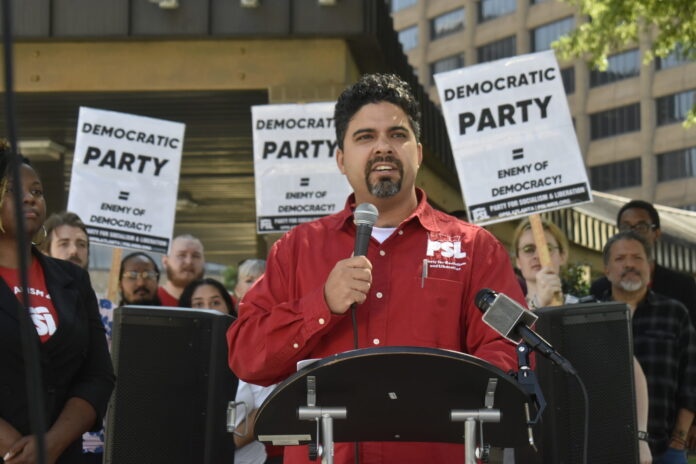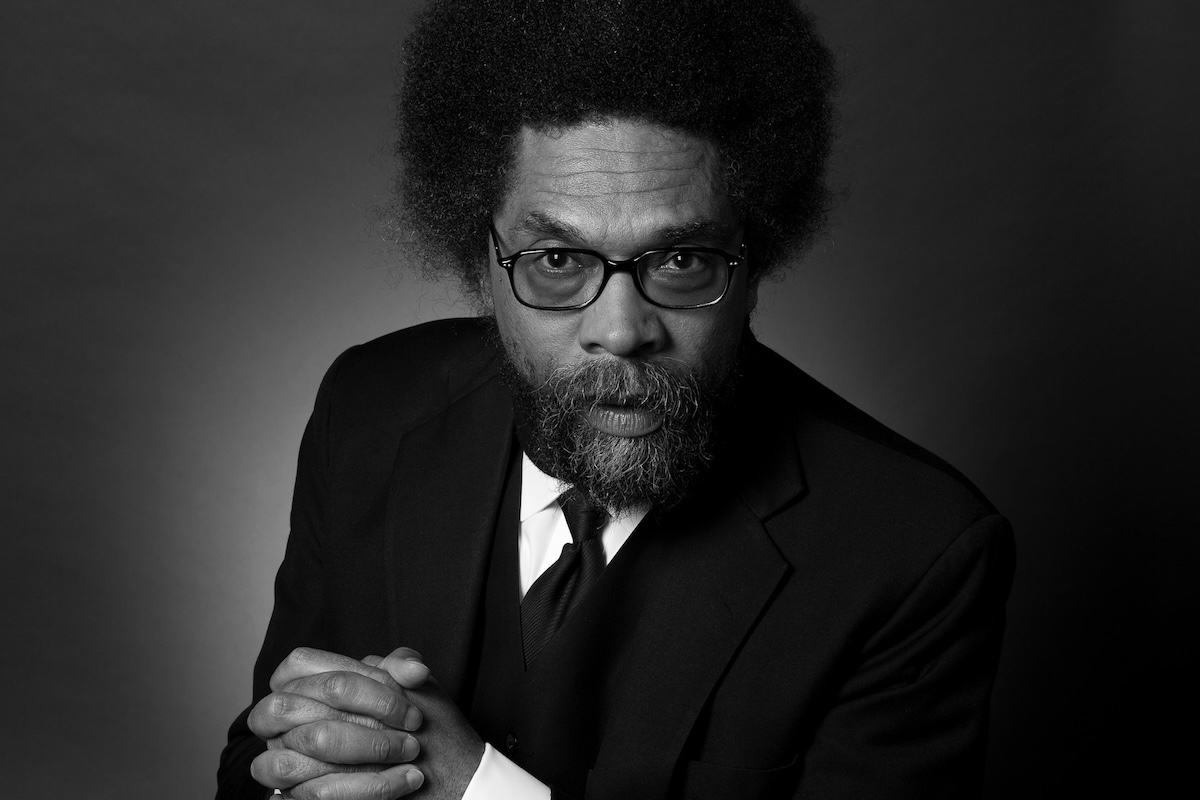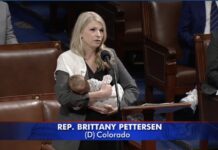
(Georgia Recorder) — Georgians casting ballots this November will have the option to choose from among at least three presidential candidates. Others say they have earned the right for a shot at the White House, but the Democratic Party of Georgia is trying to keep them out of the running.
Four third-party presidential candidates say they are preparing to fight challenges from state Democrats to their ability to appear on the ballot this November.
Jacob Dallas-Main, a volunteer with the Party for Socialism and Liberation, said Georgia Democrats have been especially aggressive against the socialist candidate, Claudia De la Cruz.

“We know this is because Georgia is sort of a new purple state, a new swing state,” he said. “They want to fight it out here, but we say the people of the South should have options, and if the Democrats or the Republicans want to win in this state, they should win on the merits of their own programs, and they should actually deliver things to the people, not just try to force someone into the lesser of two evils.”
Speaking at a press conference near the state Capitol Thursday, Dallas-Main and other volunteers said they worked hard to collect nearly 16,000 signatures from Georgia voters ahead of a July deadline. State law requires 7,500 valid signatures to secure a spot on the ballot.
“We collected more than double the required amount of signatures because we know that for one reason or another a signature could be invalidated,” said campaign volunteer Estevan Hernandez. “This was a serious effort on behalf of all of our volunteers, many of whom clocked out of their nine to fives and immediately spent the rest of the afternoon and evening petitioning on both weekends and weekdays for three months.”

But in July, state Democrats launched a complaint with Secretary of State Brad Raffensperger’s office alleging the De la Cruz campaign, along with the campaigns of Robert F. Kennedy Jr. and Cornel West, claiming flaws with their signatures and application processes. The Democrats are also challenging Green Party candidate Jill Stein, whose campaign took a different route toward appearing on the ballot. Rather than collecting signatures, the Stein campaign hopes to appear on the ballot via a new state law allowing candidates who have made the ballot in at least 20 other states to also appear on Georgia’s ballots.
“We take the nomination process very seriously and believe everyone should follow the rules. At this time, it appears that campaigns for RFK, Jr. Cornel West, Claudia De la Cruz, and the Georgia Green Party have not faithfully observed the state of Georgia’s election laws. They have missed numerous statutory deadlines, skipped filing fees, submitted the wrong names on the nomination petitions, and some failed to hold conventions. None of these candidates are qualified to be on the Georgia ballot,” said Democratic Party of Georgia Executive Director Tolulope Kevin Olasanoye.
Recent polls have put Vice President Kamala Harris in a better position to win swing states like Georgia than her boss, President Joe Biden, with pollsters and politicos shifting the state from leaning toward Republican Donald Trump to a toss-up.

Recent polls also suggest third parties, especially Kennedy, could be taking away more votes from Trump than Harris.
In a Zoom call with members of the media late last month, Kennedy campaign staff expressed confidence that they would win the case in Georgia, which includes allegations that they filled out petitions in the wrong form.
“It’s one of those sort of throwing spaghetti at the wall kind of things,” said senior ballot access council Paul Rossi. “The petitions are on the right forms. They’ve also made the allegation that the presidential electors didn’t pay a filing fee. Well, there is no filing fee in Georgia for presidential electors, so it’s one of those challenges which, because they can’t challenge the signatures, they’ve made allegations which are simply not correct at law.”
Cornel West spokesman Edwin De Jesus said the state party’s actions were undemocratic.
“The fact that the Democrats had a ballot access challenge pre-planned before our electors even filed their paperwork is a clear indication that there was an attempt to suppress competition rather than identify a nominee who truly speaks to the issues of working people. This undermines the democratic ideals they claim to uphold,” he said.

De Jesus said the campaign is engaging with legal experts ahead of a hearing of the Georgia Office of State Administrative Hearings scheduled for Aug. 22. The Stein campaign has confirmed it has a hearing scheduled on the same day, and De la Cruz’ volunteers said their hearing is scheduled for Aug. 19.
Dallas-Main said voters are increasingly calling for choices beyond the two major parties, and he predicted that will continue even if De la Cruz and vice presidential candidate Karina Garcia don’t make their way onto Georgia ballots.
“Even if we were to be defeated – and to be clear, we do not expect to be defeated. We have a strong argument – But even if we were to be defeated, we’re going to go on organizing,” he said. “We’re going to go on talking about the need for organization outside the Democratic and Republican Party, and we’re going to go on spreading this message, organizing, hitting the streets, doing the work, wherever it needs to be done.”







